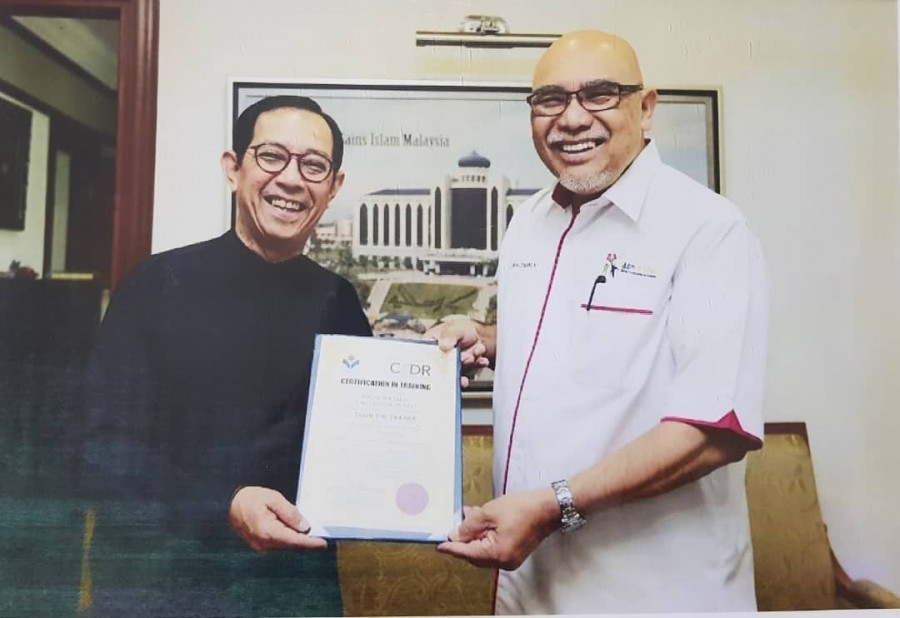TOKYO, June 15, 2018 – Hari Raya Aidil Fitri 1439H brings great blessings to Sejahtera Leadership Initiative (SLI) with the announcement by United Nations University (UNU) – Institute for the Advanced Study of Sustainability (IAS) that the monograph of 17 Chapters with 252 pages entitled ‘Innovation in Local and Global Learning Systems for Sustainability: ACADEMIA AND COMMUNITIIES – ENGAGING CHANGE’ contribution by the Regional Centres of Expertise on Education for Sustainable Development (ESD) was ready and set for publication world-wide. Chapter 14 page 208-217 is contributed by SLI team of authors.
The Editorial Board comprised of Dr. Zinaida Fadeeva, Visiting Professor at TERI University, formerly Senior Specialist Strategy and Policy, UNU-IAS; and Dr. Laima Galkute, Associate Professor, Vilnius University (Lithuania), Member of the Lithuania National Commission for UNESCO, and Dr. Kiran Chhokar recognised that SLI authors presented a variety of examples of how to integrate cultural contexts into ESD to strengthen values-orientation as a foundation in developing key competencies. Sejahtera is now officially launched internationally reaching out a global network of UN members’ countries and institutions.
The UNU-AIS is a leading research and teaching institute headquarters based in Tokyo, Japan. Its mission is to advance efforts towards a more sustainable future, through policy-oriented research and capacity development focused on sustainability and its social, economic and environmental dimensions. It serves the international community through innovative contributions to high-level policymaking and debates, addressing priority issues for the UN system. This is a global think-tank and postgraduate teaching institute in 3 thematic areas: sustainable societies, natural capital & biodiversity, and global change & resilience.
SLI team of authors who contributed in Chapter 14 of the said book entitled ‘Decolonising the Paradigm of Sustainable Development through the Traditional Concept of Sejahtera’, led by Professor Tan Sri Dzulkifli Abdul Razak, SLI Founding Convener and Chairperson of Universiti Sains Islam Malaysia (USIM); Emeritus Professor Hood Mohd. Salleh, Universiti Kebangsaan Malaysia (UKM); Associate Professor Dr. Mahazan Abdul Mutalib, Director, USIM Centre for Management Research and Innovation; Archaeologist Dr. Nasha Rodziadi Khaw who’s a Senior Lecturer & Researcher, Centre for Global Archaeological Research, Universiti Sains Malaysia (USM); and SLI-CEO, Dr. Haji Zulkifly Baharom. They focused Sejahtera as the humanistic wellbeing for any individuals.
in this book, SLI team of authors analysed the concept of Sejahtera which carries a positive connotation of abundance, happiness, prosperity, peace and tranquility. It underscores that indigenours knowledge and wisdom have had their own uniqueness, strength and relevance for the local community over the years. It was at USM in early 2000 that the culturally rich notion of Sejahtera was first mooted by its 5th Vice Chancellor, Professor Tan Sri Dzul. The concept of Sejahtera was implemented in USM as a way as a learner-driven initiative to empower students to ‘bring home’ traditional wisdom and cultural values.
USM Archaeologist Dr. Nasha who also served as SLI Associate Director said, “Among the important issue discussed in Chapter 14 is the etymology of the word Sejahtera as well as the history of its concept of sustainability and harmony with nature and environment in the Malay world. Study has shown that the word Sejahtera could have originated from few possible words of Sanskrit language, all denoting positive connotations, referring to abundance, harmony etc. When, and how the word were loaned into the Malay language is not yet known, but it could have happened well before the 14th Century C.E.
“The concept of sustainability and harmony with nature embedded in the word Sejahtera is by no means new in the traditional Malay culture. Throughout their history, from the Prehistoric period, towards the formation of early states and into the pre-modern and modern period, the Malay society from its statecraft, economy, politics and culture has always revolved around the harmonious adaptation with nature. Thus, as we enter into the post-modern period, it will not be difficult to revive this concept as it has been well embedded in our culture.”
In a nutshell, Professor Tan Sri Dzul aptly concluded that “The strategy of raising awareness among the students and the community about the pre-existing concept of sustainability in the culture allows them to feel a cultural connectedness to the idea and philosophy, as something that has been part of our culture and lifestyle (albeit forgotten) since time immemorial. Co-creation and co-learning of the Sejahtera concept through interaction with the community would give all parties a sense of ownership and belonging that make the real changes easier to implement. In this sense, knowledge institutions globally must be open to broadening the knowledge system by embracing relevant traditions, values or even indigesting the learning base as part of the declolonisation of knowledge.”
Prepared by :
Dr. Zulkifly Baharom
CEO Sejahtera Leadership Initiative

